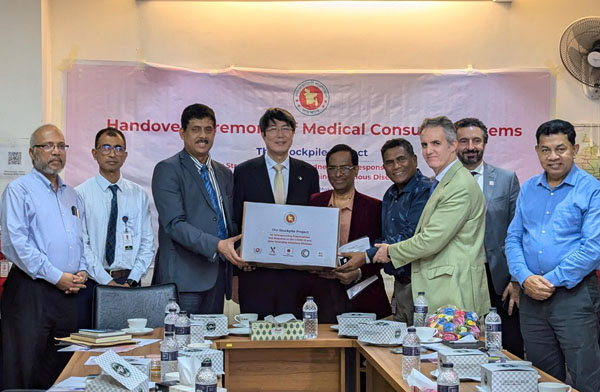
DHAKA, Sept 25, 2024 (BSS) - Japanese Ambassador to Dhaka IWAMA Kiminori today handed over medical kits including Dengue kit and Cholera saline to the Directorate General of Health Services (DGHS) under the Stockpile Project supported by the Bangladesh Red Crescent Society (BDRCS) and the International Federation of Red Cross and Red Crescent Societies (IFRC) and funded by the Government of Japan and Asia-Europe Foundation (ASEF).
In January, the Japanese government provided COVID-19 test kit to DGHS under the Stockpile Project, and this time the funds from the same project were used to support the eight divisions including Holy family Hospital and Kurmitola General Hospital that had suffered flood damage due to heavy rain, said a release here today.
The tragic flooding in Bangladesh on August 17 has made it difficult to access safe drinking water and adequate sanitation. Tens of thousands of Bangladeshis are at high risk of contracting fatal diseases such as dengue fever, cholera, diarrhea and other waterborne diseases, it added.
The medical items provided this time are Dengue kit, Cholera saline, Normal saline, Dextrose normal saline, and COVID-19 test kit. In particular, Cholera saline has been provided additionally to areas that were particularly badly affected by the flood, and among the 50,000 cholera saline, IFRC/BDRCS already delivered 20,000 Cholera Saline to Feni, Noakhali, Lakshmipur and Cumilla.
Ambassador IWAMA expressed his hope that the support from the Government of Japan would improve the situation and prevent the spread of infectious diseases caused by flooding in Bangladesh.
The ambassador said, “The current flood will leave a lasting impact on people. I hope this fund will continue supporting the Bangladesh government and Directorate General of Health Services in better preparing and responding to other disasters and diseases. Japan will continue to support the improvement of this situation and the health and well-being of Bangladeshis as we have since the 1970’s”.